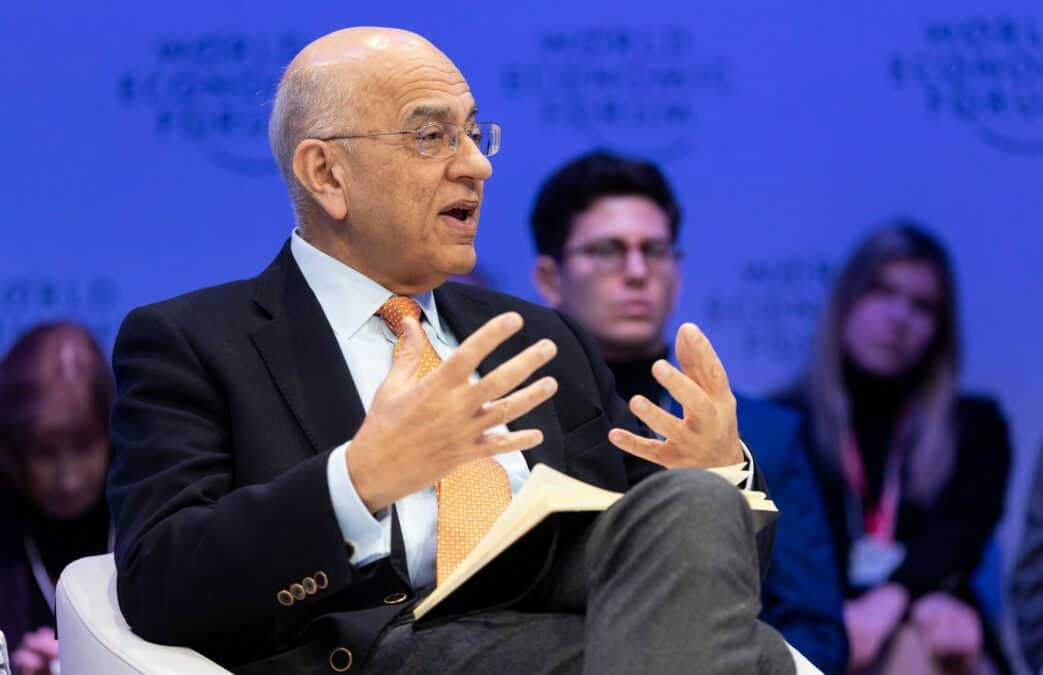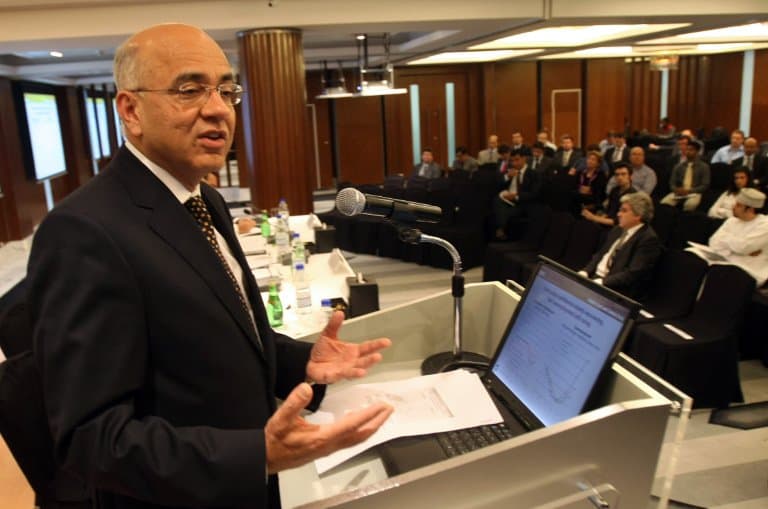DAVOS, Switzerland — The year 2023 will be difficult for the global economy, with around one-third of countries likely to go through a recession, Sir Masood Ahmed, President of the Center for Global Development, told TRENDS in an interview.
“While some optimism exists regarding the second half of the year, the focus is still expected to look better by the end of the year,” added Ahmed, who is also former IMF Director for Middle East and Central Asia Department.
During the interview, Sir Masood also discussed the countries, regions, and economies that are expected to be less impacted by the recession, including oil-exporting countries. He also shared his views on the growing trend of digital currencies and central banks’ interest in them, as well as the concept of re-globalization and achieving climate change goals.
Excerpts:
What’s your take on the global economic situation amidst predictions of an impending recession?
The year 2023 will be difficult for the global economy, with about one-third of the countries likely to go through a recession. Although there is some optimism about the prospects for the second half of the year, especially since some economic experts are considering upgrading their forecasts, the economic focus is still expected to look better by the end of the year. The difficult economic conditions for the first half of the year are mainly due to slowing economies and high inflation, which have resulted in high interest rates that hurt economic activity. Additionally, several countries have to find their way through high levels of data. However, the countries that will perform better are the ones with stronger reserves and political systems that allow them to take decisions easily.
Which countries, regions or economies are expected to less impact of the recession?
Oil exporting countries are expected to do well, given the high and stable oil and gas prices, which are likely to stay high for at least the next year. Nonetheless, big importers of oil, gas, food, and fertilizers are likely to face more difficult circumstances.
Is the impending recession part of a normal economic cycle, or are there more specific issues and problems that triggered and accelerated it?
The impending recession is part of a normal economic cycle, with many years of cheap money coming to an end, and many countries pulling back on their extra spending during COVID. However, the situation is a bit unusual because the recession is coming at a time when countries are already dealing with the after-effects of the pandemic, having exhausted all their savings and buffers. Additionally, there is a significant political issue as well, with a more fragmented world, and a long-term strategic rivalry between the United States and China. Furthermore, there is a sense of fragmentation and regional blocks on the geopolitical front. The fragmentation also comes when dealing with issues like climate change and pandemics that require cooperation, which is difficult when there is more rivalry in the world.

How do you view the growing trend of digital currencies and central banks’ interest in them?
The jury is still out in terms of how widely cryptocurrencies will be used and fully understanding the risks that come with them. Nonetheless, central banks are looking into digital currencies. It remains to be seen if countries and people are ready to adopt them.
Do you believe that the current talk of re-globalization is simply part of a cycle of globalization and localization, similar to an economic cycle?
The term “globalization” is often used imprecisely and encompasses many different things. Global trade and production, which involve components and services from multiple countries, will continue to be a part of the global economy for the foreseeable future, as it is more efficient and cheaper. However, there will be efforts to diversify supply chains and reduce reliance on one or two countries for certain products, especially in light of strategic rivalries. Bringing everything back home is not economically feasible or a good idea, as it would make supply chains less resilient and ultimately make the world poorer.
Is the world still just scratching the surface when it comes to achieving climate change goals and transitioning to a green economy?
Recent events such as extreme temperatures in Europe, drought in Africa, and floods in Pakistan have raised awareness of the need to address climate change and transition to a green economy. However, there is still a lot of work to be done. It is unclear how much of the growing momentum and pressure, particularly from young people, will translate into action. Private sector companies are starting to integrate sustainability into their strategies and accountability. However, the world is not on track to meet even the 2% emissions reduction target, let alone the more sustainable 1.5% goal. The challenge for developed countries is to cut back on their emissions, while the challenge for emerging markets and developing countries is to avoid allowing their emissions to grow in a way that is incompatible with their objectives. To do so, they will need technology and financing to make the right choices. At present, there is more talk than action on this front.
Do economic sanctions work, specifically in the cases of Iran and Russia?
Economic sanctions can work in targeted short-term ways. However, it is unclear whether they have a long-term, broad impact and whether they ultimately change the behavior of the countries or regions being sanctioned.








